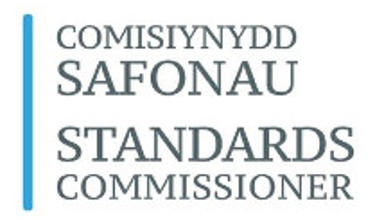Ensuring that everyone is respected when engaging with their elected representatives is a key principle of a proposed new Code of Conduct for Members of the Senedd.
The current Code has been reviewed to reflect contemporary standards in public life and the political, constitutional and cultural context in which Members of our evolving Parliament operate.
A proposed new Code, published today (17 March 2021) by the Senedd’s Standards of Conduct Committee, contains an additional principle - ‘respect’ - as part of wider overarching principles about how Members should behave. The principles are accompanied by a set of clear rules to which Members of the Senedd can be held to account. The Senedd will be asked to adopt the new Code next Wednesday (24 March).
The Code of Conduct sets out the standards of behaviour expected of Members of the Senedd. If anyone believes that a Member has not met these standards, they can complain to the Senedd Commissioner for Standards. The Commissioner - who is independent - promotes, encourages and safeguards high standards of conduct by Members of the Senedd.
The publishing of the new Code coincides with the appointment of Mr Douglas Bain as Standards Commissioner. Mr Bain previously held the equivalent role in Northern Ireland and has been Acting Commissioner in Wales since 2019. He was selected following an open competition and his appointment was confirmed by the Senedd this afternoon.
A new principle of Respect
The overarching principles of the Senedd Code of Conduct are based around the Seven Principles of Public Life – known as the ‘Nolan principles’ - plus a new principle: ’respect’. This means that Members must always “behave in ways that promote equality of opportunity, respect the dignity of other persons and not engage in discriminatory or unwanted behaviour.”
The revised Code also contains a set of 24 enforceable rules. The rules are not intended to be used to judge how Members fulfil their responsibilities as elected representatives, but enable Members to be held to account for their conduct. It is hoped that this will make it clearer what standards of behaviour we can all expect of our elected representatives.
Jane Bryant MS, the Chair of the Standards of Conduct Committee said:
“The Standards of Conduct Committee has been considering how best to reflect the important moments of the last few years such as the #metoo movement and Black Lives Matter, and to make sure we have Standards regime which can stand the challenges of a modern evolving Parliament. We believe the concept of treating everyone with respect and as equals is an important addition to the key principles of public life set out in the Nolan Principles. We have proposed that this be included in the Senedd’s new Code as a new principle – ‘respect’.
“I welcome the appointment of Douglas Bain today as the new Commissioner for Standards. Douglas Bain has shown through his work as Acting Commissioner, and his ambitions for the next six years, that he is committed to the reforms needed to make sure the standards regime remains fit for our evolving Parliament.
“The revised Code of Conduct and appointment of a new Commissioner are important steps to embedding the new standards regime in the Sixth Senedd.”
On his appointment as the Senedd Commissioner for Standards, Douglas Bain said:
“I am honoured to be appointed as the Senedd Commissioner for Standards.
“I will continue to do my utmost to ensure we have a complaints system that is fair, honest and straightforward, to both those who make a complaint and to any Member who has a complaint made against them.
“Members of the Senedd should be setting an example on the standards required in public life in Wales, and after the election in May with a new Senedd, a new Code of Conduct and a new Commissioner we will have a great opportunity to rebuild public trust and confidence in the Senedd and its work.
“I am also keen to increase the public’s understanding of the ethical standards required of Members. I hope to meet with local groups to explain the complaints process, my role as the Commissioner and how to make a complaint if the required standards are not met.”






